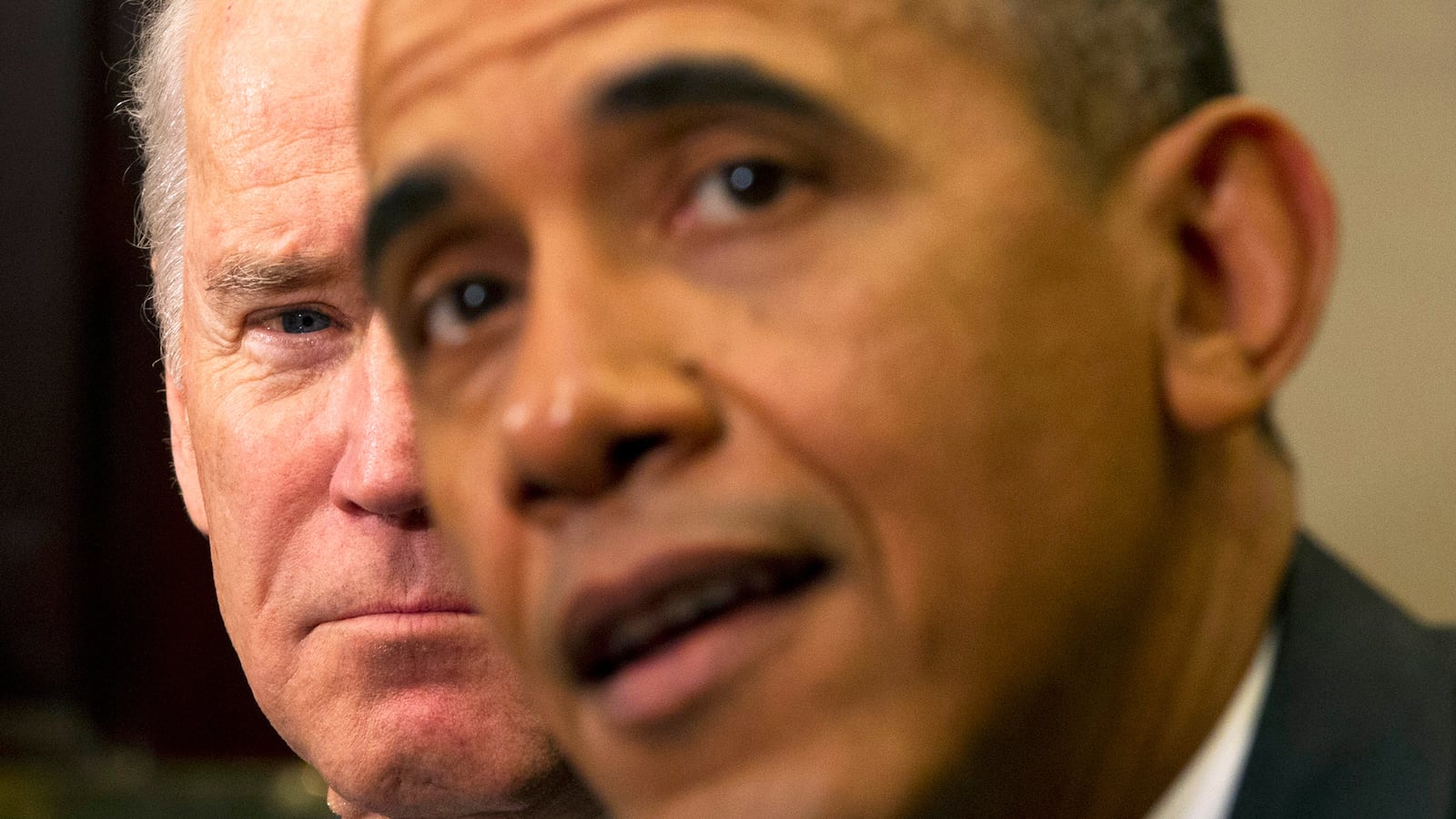In the financial world, inflation is defined as “too much money chasing too few goods.”
In the world of political journalism, inflation is “too many pundits chasing too few scenarios.” Like the editors of Cosmopolitan struggling each month to find new sexual positions, implements, and erogenous zones, scribes are already running out of ways to chronicle the strategies and prospects of presidential contenders: “How Marco Can Stop Jeb”; “How Paul Can Block Cruz and Huckabee”; “How A Fiorina-Santorum Alliance Can Overcome The Pataki Threat.” Meanwhile, we have only recently crossed the halfway point of Barack Obama’s second term.
Is there any unexplored scenario for 2016, any notion that offers something genuinely new to contemplate? Yes.
I urge Vice President Joe Biden to run for…vice president.
I know Mr. Biden wants to be president. He ran twice, leaving the 1988 race before it began, amid charges of plagiarism, and making a respectable showing twenty years later by winning 1 percent in the Iowa caucuses. If he can figure out a way to run a competitive race against Hillary Clinton, he will likely try again. (I should quote you poll numbers here to demonstrate how daunting this will be, but I treat polls a year before the first caucuses the way I treat month-old unrefrigerated sushi).
Biden is entitled to argue that his forty-plus years in federal office (he won his U.S. Senate seat in 1972 at the age of 29) gives him an unmatched wealth of experience. He has seen the White House at the President’s right arm. He has no doubt absorbed a host of lessons about what works and what doesn’t.
So how does he best ensure that he can put that wealth of experience to work? By entering an almost certainly futile contest for the presidency? Or by staying exactly where he is?
“Wait!” I hear you objecting. “He’s already served two terms. He can’t run again!”
Not so, my semi-informed friend. There is no Constitutional reason at all why Biden cannot seek a third term as vice president. The 22nd Amendment, passed by a Republican Congress in 1947 looking for post-mortem payback for FDR’s four terms, and ratified by the states in 1951, says simply:
“No person shall be elected to the office of the President more than twice.” It also says that a vice president who succeeded to the Presidency for two years or more can only run for one full term. (That’s why LBJ could have run for a second full-term in 1968, while Gerald Ford would have been a lame duck had he beaten Carter in 1976.)
Now there are intriguing questions about what this two-term amendment covers. For instance, could Bill Clinton run for vice president? (The 12th Amendment says the vice president must have the same Constitutional qualifications as the president, but that may cover matters of age and birthplace.) What if George W. Bush ran for Congress, was elected Speaker, and was thus next in line when tragedy struck both POTUS and VPOTUS? After all, the 22nd Amendment talks about who can be “elected “ president, not who can serve.

These questions may keep a few law professors gainfully employed, but they have nothing to do with Joe Biden’s eligibility. Neither the 22nd Amendment nor any piece of legislation offers an impediment to Biden staying on. Nor does history. George Clinton was Veep during Thomas Jefferson’s second term and James Madison’s first term. John C. Calhoun was John Quincy Adams’ VP, and stayed on during Andrew Jackson’s first term.
The harder question, of course, is political. Would it be an advantage to the Democratic presidential candidate to have Biden by her side? The answer lies in what happens over the next year and a half. If Obama winds up as unpopular as he was in 2014, there’d be no good argument for a third Biden term. However, President Obama’s job approval has bumped up about seven points in the last year. If that pattern continues, Obama will find himself at close to 60 percent by the time Democrats gather in convention, and a Biden vice presidency might well seem an attractive “third term” idea. And, unlike every VP who sought and won his party’s presidential nomination, Biden would be spared the burden of trying to prove himself “his own man.” He’d simply be the symbol of experience, free to distance himself from the less popular policies and ideas of the outgoing Chief Executive.
Yes, it’s a radical notion; yes, it will no doubt bring scorn from those who can only see politics in conventional terms. But it not only offers something new and promising to our political life; it comes with a pre-tested, ready-to-wear slogan: “Biden for Veep; Third Term’s A Charm.”






